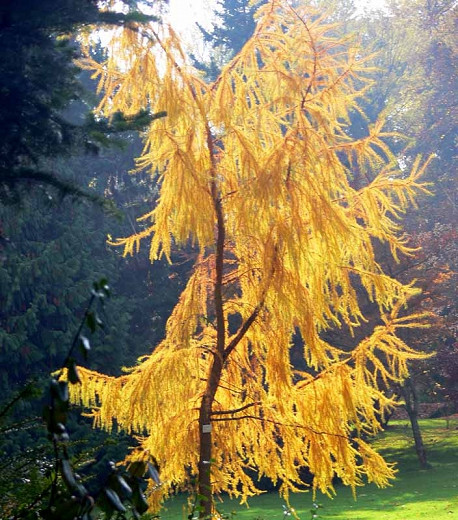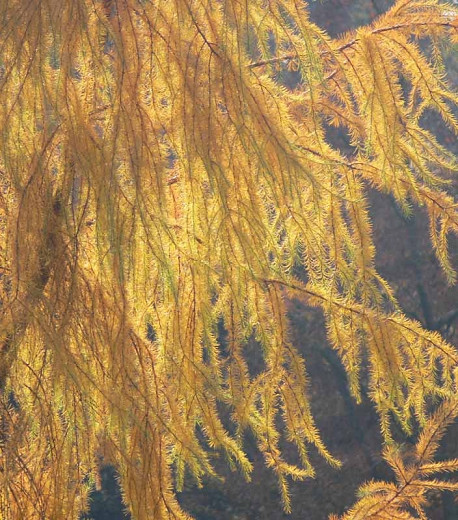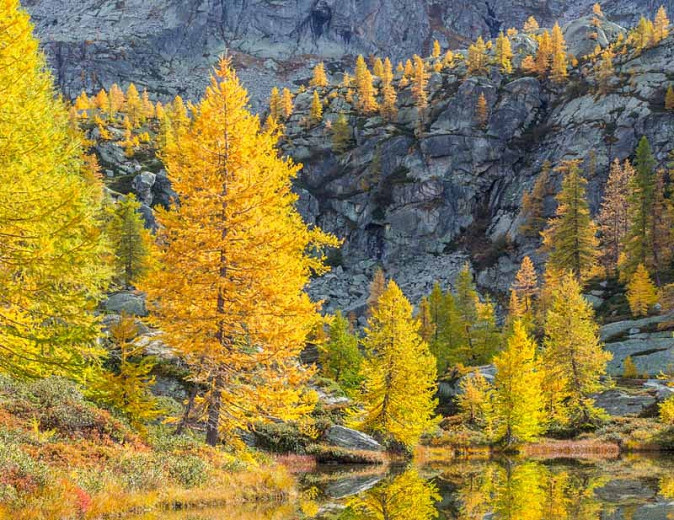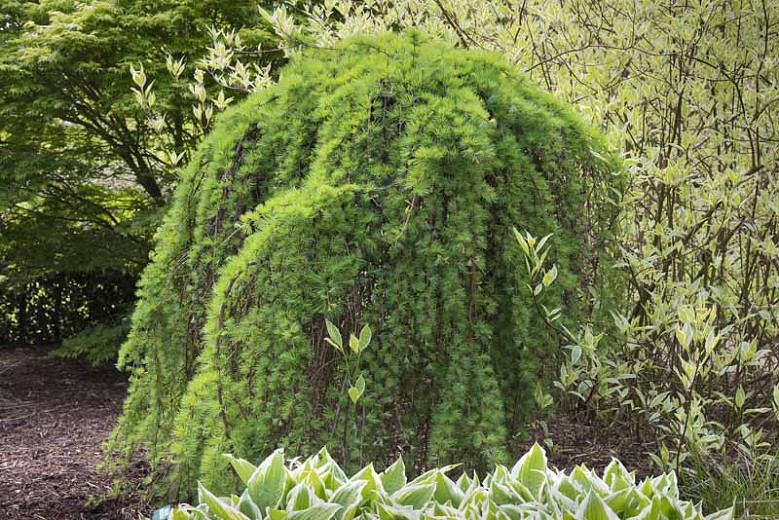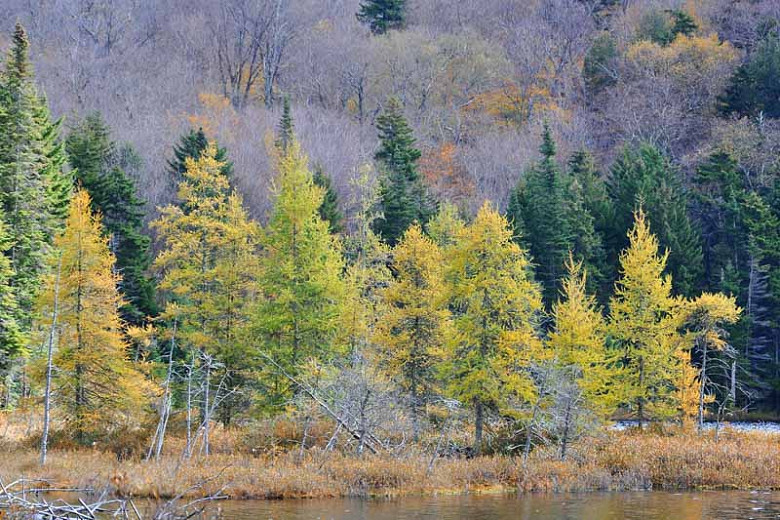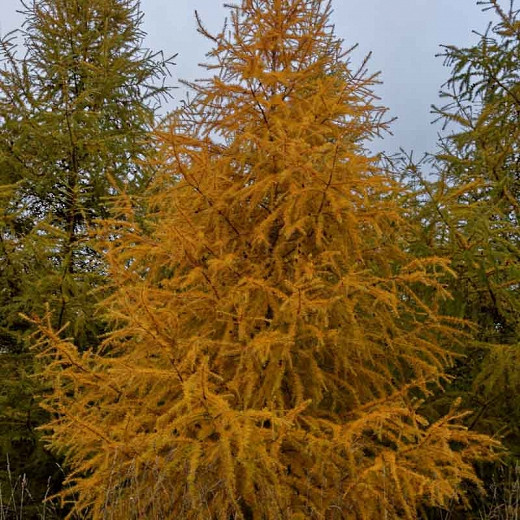Larix kaempferi (Japanese Larch)
Larix kaempferi (Japanese Larch) is a vigorous deciduous conifer adorned with a round, straight trunk and long, horizontally spreading branches, and slender pendulous branchlets. The crown is conical, dense, becoming irregular, and more open with age. Unlike most cone-bearing trees, the Japanese Larch loses its foliage each winter. Among the earliest trees to come into leaf in spring, its gray or blue-green needles turn bright yellow before being shed in the fall. They are spirally arranged on long shoots and are spirally arranged in radial clusters of 20-35 on short shoots. Small, erect, conical, violet cones mature to orange-brown before turning dark brown when old. They persist on the tree, falling long after the seeds have dispersed. The bark is smooth and red-brown on young trees, becoming scaly and fissured, weathering to gray with age. Fast-growing and very hardy, Japanese Larch makes a wonderful specimen in a large landscape. It is adaptable to wet areas, tolerates clay soils, and is disease-resistant.
- Grows up to 70-80 ft. tall (21-24 m) and 25-40 ft. wide (7-12 m).
- A full sun lover, this plant is easily grown in deep, well-drained soils.
- Watch for adelgids, honey fungus, and canker.
- No pruning required
- Propagate by seed, sown from late winter to spring. Chilling the seeds for three weeks may aid germination. Propagate by softwood or semi-ripe cuttings in summer. Graft in winter
- Native to Japan
Requirements
| Hardiness | 4 – 7 |
|---|---|
| Heat Zones | 4 – 7 |
| Climate Zones | 1, 1A, 1B, 2, 2A, 2B, 3, 3A, 3B, 4, 5, 6, 7, 8, 9, 14, 15, 16, 17, 18, 19 |
| Plant Type | Conifers, Trees |
| Plant Family | Larix – Larches |
| Exposure | Full Sun |
| Season of Interest | Spring (Mid,Late)Summer (Early,Mid,Late)Fall |
| Height | 70' – 80' (21m – 24m) |
| Spread | 25' – 40' (7.5m – 12m) |
| Water Needs | Average |
| Maintenance | Low |
| Soil Type | Clay, Loam, Sand |
| Soil pH | Acid, Alkaline, Neutral |
| Soil Drainage | Well-Drained |
| Characteristics | Showy |
| Tolerance | Deer |
| Garden Uses | Beds and Borders |
